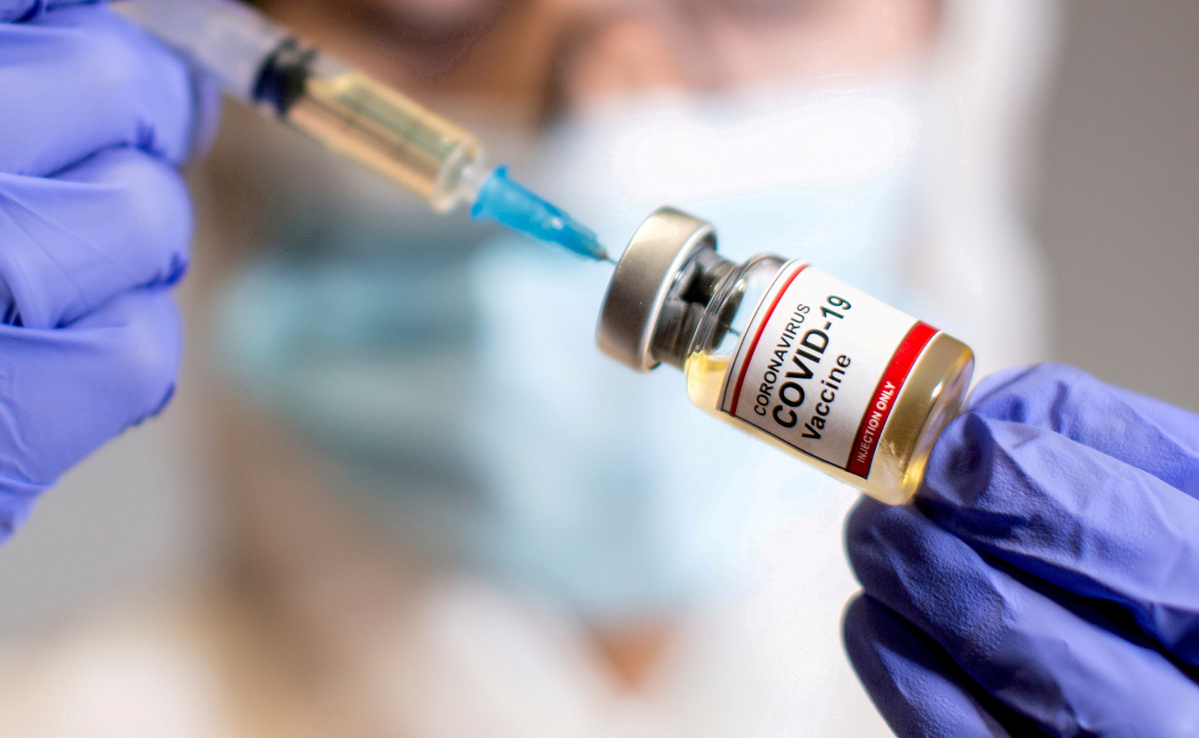
[Photo/Agencies]
BEIJING -- The health department of the state of Espirito Santo, Brazil, announced on Tuesday that the presence of IgG antibodies, specific to SARS-CoV-2 virus, was detected in serum samples from December 2019.
The health department said that 7,370 serum samples had been collected between December 2019 and June 2020 from patients suspected of infection with dengue and chikungunya.
With the samples analyzed, IgG antibodies were detected in 210 people, of whom 16 cases suggested the presence of the novel coronavirus in the state before Brazil announced its first officially-confirmed case on Feb 26, 2020. One of the cases was collected on Dec 18, 2019.
The health department said that it takes about 20 days for a patient to reach detectable levels of IgG after an infection, so the infection could have occurred between late November and early December 2019.
The Brazilian Ministry of Health has instructed the state to conduct in-depth epidemiological investigations for further confirmation.
The findings in Brazil are the latest among studies worldwide that have added to growing evidence that COVID-19 silently circulated outside China earlier than previously thought.
Researchers from the University of Milan have recently found that a woman in the northern Italian city was infected with COVID-19 in November 2019, according to media reports.
Through two different techniques on skin tissue, the researchers identified in a biopsy of a 25-year-old woman the presence of RNA gene sequences of the SARS-CoV-2 virus dating back to November 2019, according to Italian regional daily newspaper L'Unione Sarda.
"There are, in this pandemic, cases in which the only sign of COVID-19 infection is that of a skin pathology," Raffaele Gianotti, who coordinated the research, was quoted by the newspaper as saying.
"I wondered if we could find evidence of SARS-CoV-2 in the skin of patients with only skin diseases before the officially recognized epidemic phase began," said Gianotti, adding "we found 'the fingerprints' of COVID-19 in the skin tissue."
Based on global data, this is "the oldest evidence of the presence of the SARS-CoV-2 virus in a human being," said the report.
In late April 2020, Michael Melham, mayor of Belleville in the US state of New Jersey, said that he had tested positive for COVID-19 antibodies and believed he had contracted the virus in November 2019, despite a doctor's reported assumption that what Melham had experienced was just a flu.
In France, scientists found a man was infected with COVID-19 in December 2019, roughly a month before the first cases were officially recorded in Europe.
Citing a doctor at Avicenne and Jean-Verdier hospitals near Paris, BBC News reported in May 2020 that the patient "must have been infected between 14 and 22 December (2019), as coronavirus symptoms take between five and 14 days to appear."
In Spain, researchers at the University of Barcelona, one of the country's most prestigious universities, detected the presence of the virus genome in waste water samples collected on March 12, 2019, the university said in a statement in June 2020.
In Italy, research by the National Cancer Institute in Milan, published in November 2020, showed that 11.6 percent of the 959 healthy volunteers who participated in a lung cancer screening trial between September 2019 to March 2020 had developed COVID-19 antibodies well before February 2020 when the first official case was recorded in the country, with four cases from the study dating to the first week of October 2019, which means those people had been infected in September 2019.
On Nov 30, 2020, a study by the US Centers for Disease Control and Prevention (CDC) found that COVID-19 was likely in the United States as early as mid-December 2019, weeks before the virus was first identified in China.
According to the study published online in the journal Clinical Infectious Diseases, CDC researchers tested blood samples from 7,389 routine blood donations collected by the American Red Cross from Dec 13, 2019 to Jan 17, 2020 for antibodies specific to the novel coronavirus.
COVID-19 infections "may have been present in the U.S. in December 2019," about a month earlier than the country's first official case on Jan 19, 2020, the CDC scientists wrote.
These findings are yet another illustration of how complicated it is to solve the scientific puzzle of virus source tracing.
Historically, the place where a virus was first reported often turned out not to be that of its origin. The HIV infection, for instance, was first reported by the United States, yet it might also be possible that the virus did not owe its origin to the United States. And more and more evidence proves that the Spanish Flu did not originate in Spain.
As far as COVID-19 is concerned, being the first to report the virus does not mean that the virus had its origin in the Chinese city of Wuhan.
Regarding these studies, the World Health Organization (WHO) said it will "take every detection in France, in Spain, in Italy very seriously, and we will examine each and every one of them."
"We will not stop from knowing the truth on the origin of the virus, but based on science, without politicizing it or trying to create tension in the process," WHO Director-General Tedros Adhanom Ghebreyesus said late November 2020.
(China Daily)







